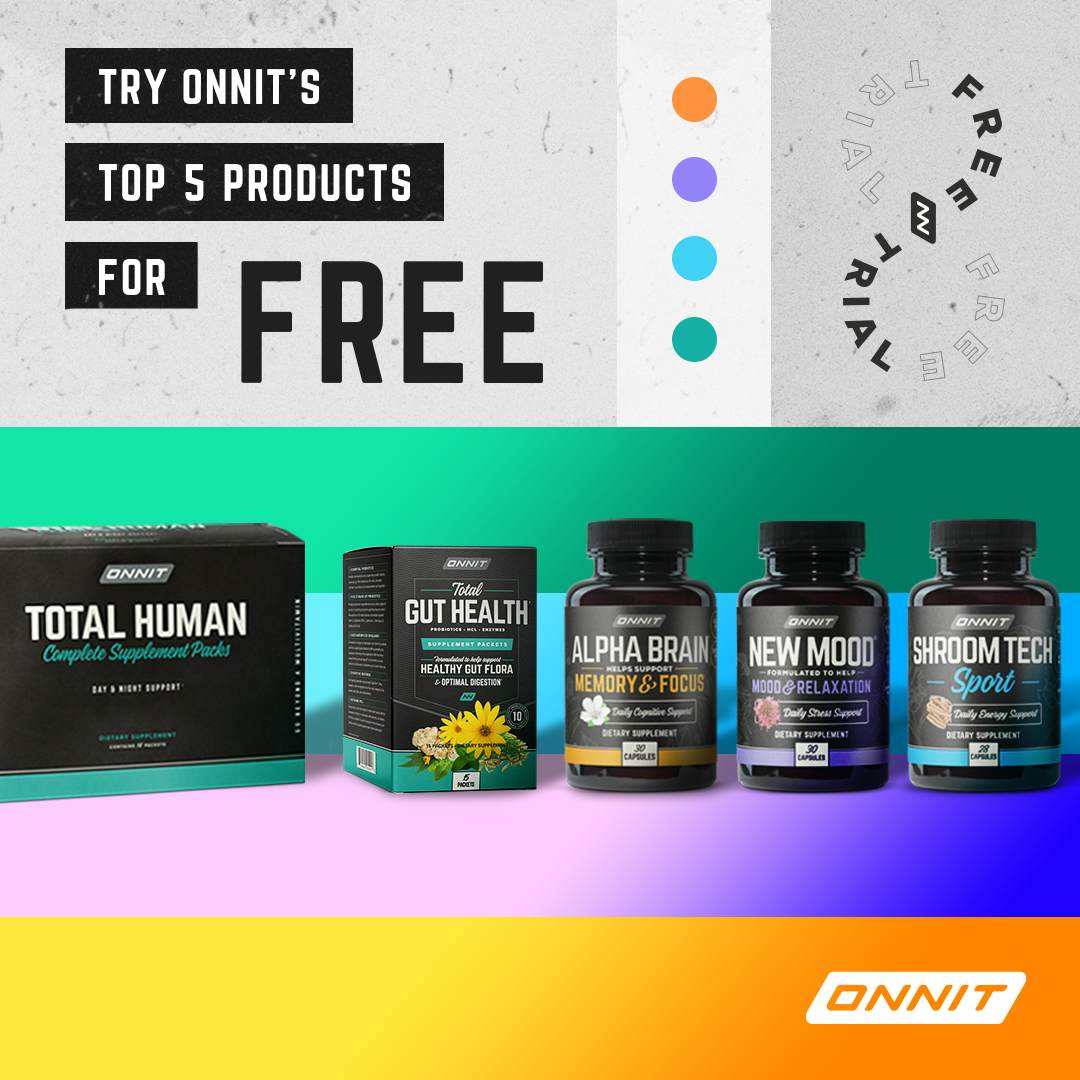
Nutritionists used to focus on how to reduce the size of your gut. Now they’re taking a closer look at what’s inside of it. Recent science points to the gut microbiome—that is, the balance of bacteria living in your digestive system—as a potential source of (or means to affect) a wide array of health concerns.
“Your gut is more than just a place for food to be digested,” says Shannon Ehrhardt, R.D., a performance dietitian with EXOS (Onnit’s partner in performance nutrition). “It’s home to more than half of the body’s immune system. An imbalanced gut microbiome can lead to a variety of different gut-related issues and make it very difficult to keep a healthy body weight.”
Glutamine: The Missing Ingredient For Gut Health
According to an article by the Harvard Medical School, the organisms in your gut help you metabolize the nutrients from your food, protect you from intestinal infections, and produce vitamin K, which aids in making proteins that allow your blood to clot. In May of this year, the preliminary findings of the largest microbiome study ever (the ongoing American Gut Project) found that people with mental disorders ranging from depression to schizophrenia shared similar bacteria makeups in their guts. “Virtually every aspect of health is tied into what’s going on in your gastrointestinal tract,” says Ehrhardt.
You may already know that you should be consuming probiotics and prebiotics to keep a healthy gut. Probiotics are the good bacteria and yeasts that help you break down food and fight off the bad bacteria in your body that can make you sick. Meanwhile, prebiotics are the fiber the probiotic organisms feed on. Foods like organic yogurt, kombucha, and kimchi, as well as supplements with good bacteria strains such as Lactobacillus and Bifidobacterium, go a long way toward helping your gut stay in balance, but there’s also a sports supplement that can bolster the effort. A supplement that, up until recently, most people only took for muscle recovery and performance.
Glutamine might be the missing ingredient that helps you digest your food better and stay healthy, while also offering ergogenic properties that kick your performance into high gear.
What Is Glutamine?
L-glutamine is the most abundant amino acid in the body, accounting for 60% of your cells’ total aminos. Your body makes some glutamine for itself, but also gets it from high-protein foods such as meat, seafood, and eggs. Still, despite glutamine’s prevalence, any number of stresses can drain your glutamine stores, causing you to become suddenly deficient. This is why glutamine is considered a “conditionally essential” amino acid.
“Your need for glutamine goes up at various times,” says Ehrhardt, “such as when you’re sick, stressed out, injured, or performing high-intensity activities. Most people probably don’t get enough glutamine in their diets.”
Therefore, glutamine supplementation is worthwhile, and it’s been shown to offer the following benefits.
Benefits of Glutamine
Supports Gut Health
“Glutamine is the gut’s preferred source of fuel to help the body repair intestinal damage and support the immune system,” says Ehrhardt. According to an article in the Journal of Epithelial Biology and Pharmacology, one way in which glutamine works is by helping to preserve the “tight junctions” in the gut lining that prevent inflamed states like leaky gut, where microbes and food you eat permeate the intestines and enter the bloodstream. In other words, glutamine can act as a sort of spackle that fills the cracks.
And good news for athletes and active people: A 2015 study in Cell Stress & Chaperones found that subjects who took glutamine shortly before working out didn’t have an exercise-induced rise in intestinal permeability and markers of inflammation.
Aids Recovery
In a 2015 study, subjects performed eccentric leg extensions to induce muscle soreness. That is, the researchers made them lower the weight slowly to create as much muscle damage in their thighs as possible. Not only did the people who supplemented with glutamine report feeling less sore afterward, they experienced a smaller loss of strength when their legs were tested again three days later (less than enough time for adequate recovery).
In summation, the researchers wrote: “A basic hypothesis is that glutamine supplementation may improve muscle function by attenuating the inflammatory response to eccentric exercise.” Additionally, “after mitigating the inflammatory response, the increased availability of glutamine promotes protein synthesis [i.e. muscle growth] and the recovery process.”
Recovery includes wound healing and the ability to bounce back from illness as well. According to an article in Eplasty, glutamine is the primary fuel source for dividing epithelial cells—the ones that line the surfaces of your body—and therefore plays a major role in aiding the body to close the skin up around a cut. Meanwhile, an Oxford study found that endurance athletes supplementing with glutamine were at a lower risk for infections. This is significant because, while we think of athletes as healthy, the stress of their training suppresses the immune system.
Promotes Aerobic Performance
As part of the body’s stress response, glutamine is released from cells and converted by the liver into glucose, making it serve as an energy source just like carbohydrates and fat. This may help to keep you training hard long past the point where you’d usually punk out—especially if the rest of your nutrition isn’t quite on point. A trial in the Journal of the International Society of Sports Nutrition had endurance athletes get slightly dehydrated and then work at 75% of their VO2 max on a cycle ergometer. Subjects on glutamine had longer times to exhaustion despite the “mild hydration stress.”
Helps Reaction Time
There’s a growing interest in non-stimulating nutrients that can help keep you alert (hence the popularity of Alpha BRAIN®). Glutamine may qualify as one of these. A 2015 study on basketball players demonstrated that glutamine supplementers had better reaction times, out-shooting a control group on the court by 12.6%.
How Much Glutamine Should I Take?
Due to Americans’ poor diets, Ehrhardt says that gut issues are becoming increasingly common. “Five grams of L-glutamine a day is a great way to support the healing process and get your gut back on track.” Available in powder form, you can take glutamine before or after training, and in combination with other supplements (say, blend it into a protein smoothie). “Glutamine isn’t time-dependent, like some supplements are,” says Ehrhardt, so you can take it any time (such as stirred into a glass of water first thing in the morning, if you like). “You could mix it into your morning oatmeal too.”




)






